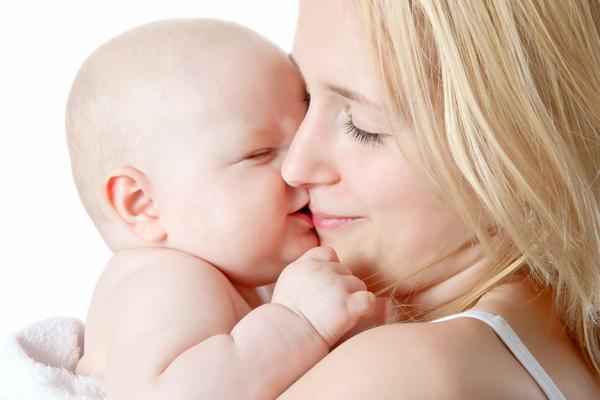Pregnant Mom's Mood Changes May Harm Baby

Depression during pregnancy has been linked with a number of complications for children once they're born. However, it may not be depression itself, but rather a change in a mother's mental state that is harmful to the baby, new research suggests.
The findings show babies did best on tests of mental and motor abilities if their mother's mood remained consistent before and after she gave birth, even if the mother's mood was depressive. But if a mother's mood changed — from either depressed to healthy, or from healthy to depressed — babies did less well.
The results suggest infants' brains may somehow detect their mother's psychological state while in the womb, and this affects their development as their bodies prepare for life after birth, the researchers said.
If an infant in the womb is exposed to a challenging environment, such as his mother's depression, he may be better able to respond to challenges later on. But if an infant is born into an environment he has not confronted, he may not react as well, the researchers said.
"The fetus is paying an active part in its own development," said study researcher Curt Sandman, a professor emeritus in the department of psychiatry and human behavior at the University of California, Irvine. "It will then thrive in an environment that is like the one it is preparing for."
Baby development
Sandman and colleagues studied 221 pregnant women. The mothers were evaluated for depression both before and after pregnancy. The babies periodically underwent tests designed to assess mental and motor development during their first year of life.
Sign up for the Live Science daily newsletter now
Get the world’s most fascinating discoveries delivered straight to your inbox.
At 6 months, babies who were exposed to congruent conditions before and after birth (their mothers were either depressed or not depressed at both time periods) had significantly higher scores on the tests of mental and motor development than babies who were exposed to incongruent conditions.
At a year, babies exposed to congruent conditions had higher mental development scores, but not motor development scores, than babies in incongruent conditions.
It's not clear what the effect of incongruent conditions will be over the long term, Sandman said.
A similar phenomenon has been found in the field of nutrition. A 2005 study showed babies who were exposed to near-starving conditions while in the womb, and then provided sufficient nutrition after birth, were at increased risk of metabolic disease.
Screening for prenatal depression
Pregnant women should be screened for depression so that they can be treated, Sandman said. He emphasized that the new findings do not mean that if mothers are depressed during pregnancy, they should be left alone, Sandman said. .
While there has been increased awareness about postpartum depression, prenatal depression receives less attention, Sandman said.
The researchers aren't sure how infants "sense" the mother's psychological state while in the womb, but it could be through hormones, such as stress hormones, released in the mothers' body.
The study is will be published in an upcoming issue of the journal Psychological Science.
Pass it on: Babies may be able to sense their mothers' psychological state while in the womb, and prepare for life after birth.
This story was provided by MyHealthNewsDaily, a sister site to LiveScience. Follow MyHealthNewsDaily staff writer Rachael Rettner on Twitter @RachaelRettner. Find us on Facebook.

Rachael is a Live Science contributor, and was a former channel editor and senior writer for Live Science between 2010 and 2022. She has a master's degree in journalism from New York University's Science, Health and Environmental Reporting Program. She also holds a B.S. in molecular biology and an M.S. in biology from the University of California, San Diego. Her work has appeared in Scienceline, The Washington Post and Scientific American.
What are ovarian cysts? All about cyst formation, symptoms and treatments
Is getting an IUD painful?









